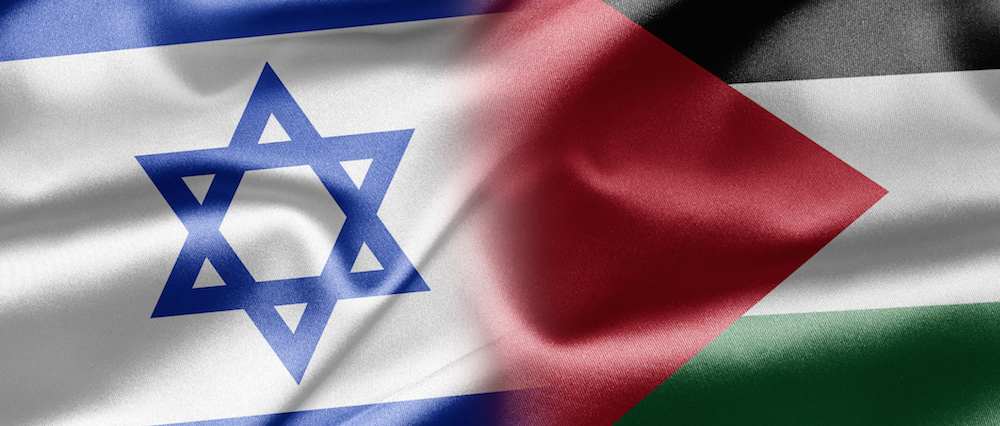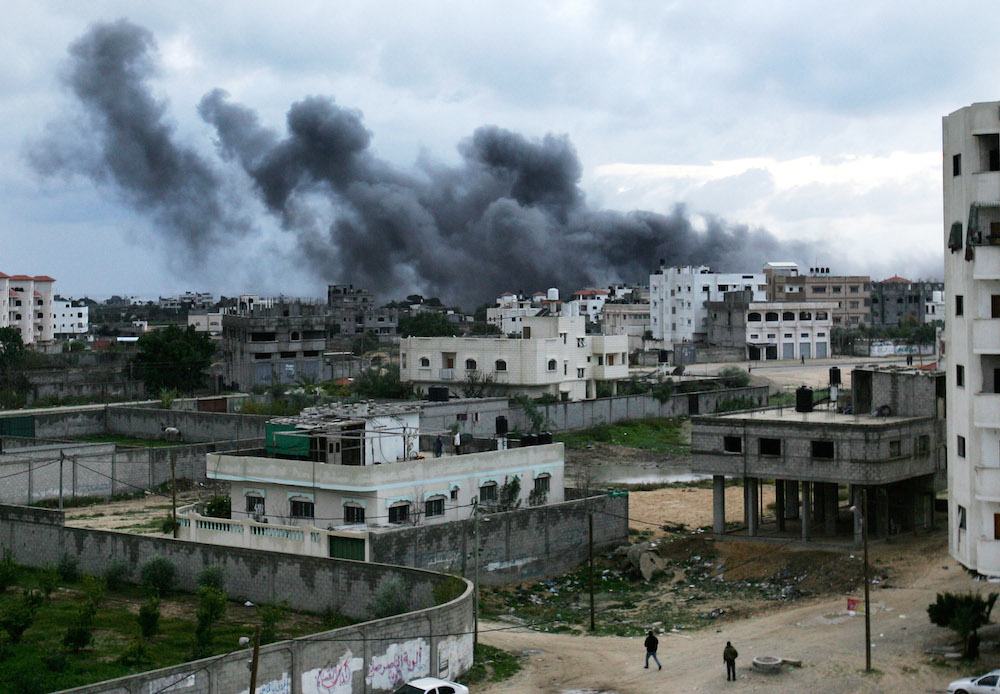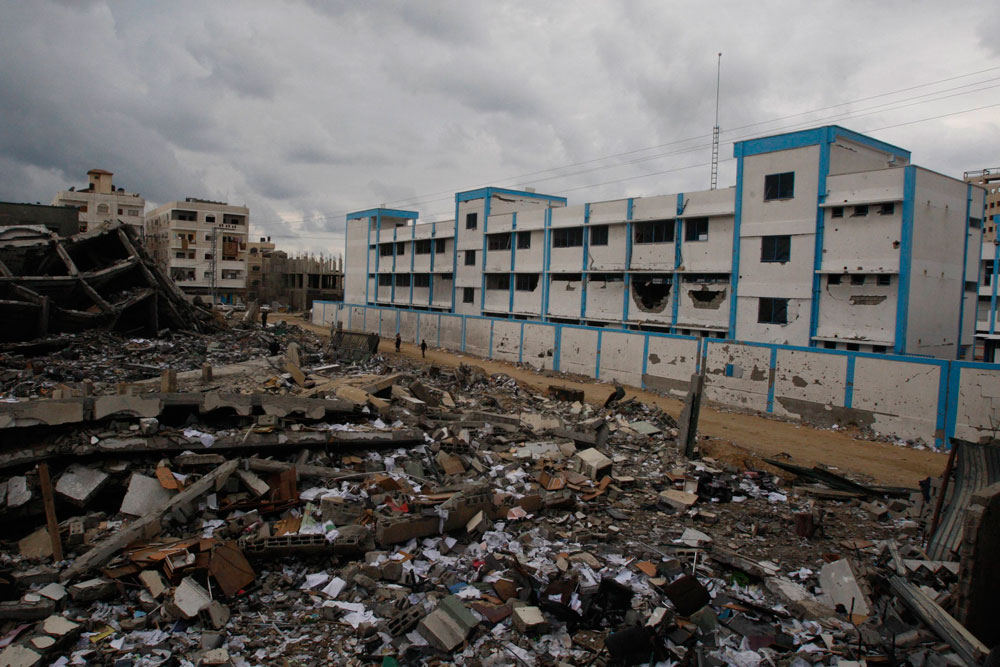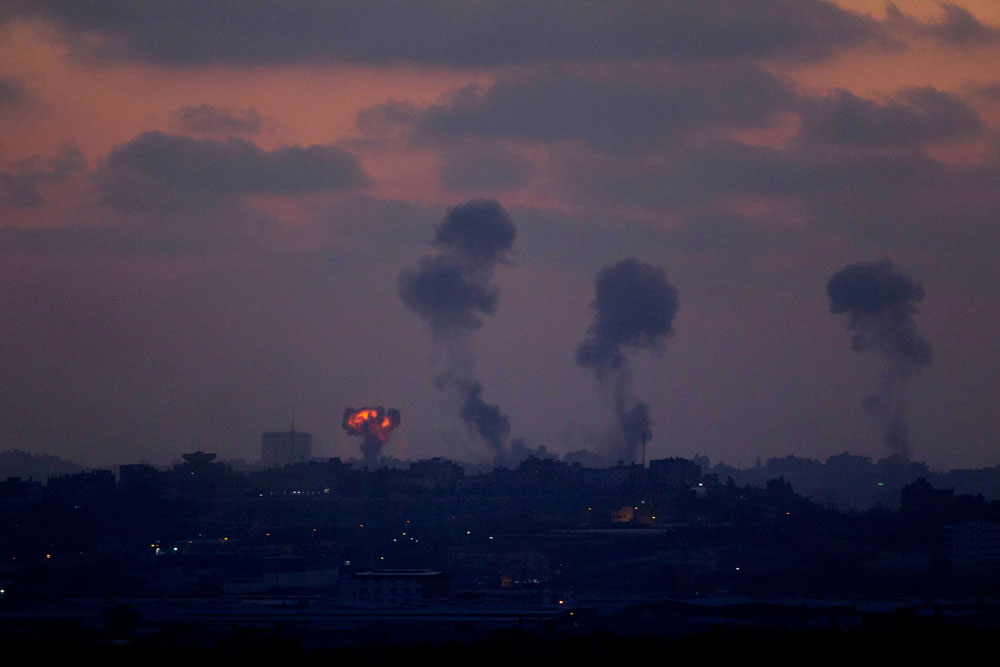





GAZA UNDER ATTACK
The latest Israeli military operation in Gaza, dubbed Operation Protective Edge, is the third major offensive on the Gaza Strip in six years.
Before the July 2014 offensive, the last large-scale escalation was in November 2012, when the Israeli military bombarded the Gaza Strip with air strikes for eight days.
Before the July 2014 offensive, the last large-scale escalation was in November 2012, when the Israeli military bombarded the Gaza Strip with air strikes for eight days.
Jump to section
Known as Operation Pillar of Defence, the strikes killed 171 Palestinians, including more than 100 civilians.
In 2008-2009, Israeli soldiers launched a 22-day military operation in Gaza, dubbed Operation Cast Lead. About 1,400 Palestinians and 13 Israelis were killed in the offensive.
In 2008-2009, Israeli soldiers launched a 22-day military operation in Gaza, dubbed Operation Cast Lead. About 1,400 Palestinians and 13 Israelis were killed in the offensive.




Jewish settlers and Israeli troops withdrew from the Gaza Strip over the course of 2005, with the majority making their way out of the territory in August that year.
Israel retained control over Gaza's borders, airspace and territorial waters. An area of dismantled West Bank settlements, also remained remained under full Israeli civil and military control, in so-called Area C
The Gaza war, also known as Operation Cast Lead, began on December 27, 2008. Israel immediately launched a widespread aerial bombing campaign, targeting more than 100 locations in the densely-populated Gaza Strip, including residential homes, police stations, schools, United Nations buildings, and hospitals.
An Israeli ground assault was launched on January 3, 2009. During the operation, Israeli forces fired shells containing white phosphorus, an illegal weapon that burns indiscriminately.
The conflict ended in a unilateral Israeli-declared ceasefire on January 18.
The conflict ended in a unilateral Israeli-declared ceasefire on January 18.
On November 14, 2012, Israel killed Ahmed Jabari, chief of Hamas' military wing in Gaza, in a targetted air strike on his car in Gaza City. Hamas responded by firing a barrage of rockets at nearby Israeli towns.
Israel then embarked on an eight-day military offensive on Gaza, which it called Operation Pillar of Defense.
Israel then embarked on an eight-day military offensive on Gaza, which it called Operation Pillar of Defense.
Hamas said the rockets were fired as a reaction to the blockade on Gaza and the occupation of the West Bank.
Israel claimed that the operation was a response to an increase in the number of rockets fired into Israeli territory in the days and weeks preceding the operation.
Israel claimed that the operation was a response to an increase in the number of rockets fired into Israeli territory in the days and weeks preceding the operation.
2005
2005
2008
2012
2014
2005-2008
Disengagement
My disengagement plan ... will improve Israel's security and economy and will reduce friction and tension between Israelis and Palestinians. My plan will create a new and better reality for the State of Israel. And it also has the potential to create the right conditions to resume negotiations between Israel and the Palestinians.
Ariel Sharon
Israeli Prime Minister (2001-2006)
Mahmoud Abbas
Palestinian president
The Israeli pullout was the result of the sacrifices, patience and wisdom of our people… The most important step after the withdrawal will be how we protect, rebuild.
21
Jewish settlements dismantled in Gaza
Settlers relocated
Proposed compensation to be paid out to the average Israeli family
to
8,500
$150,000
$400,000
Palestinians killed
were under 18 years old
of those
Israelis killed
1,391
318
13
Palestinians wounded
Israelis wounded
5,300
Houses destroyed or demolished
11,154
518
A chronology of disproportionate attacks on Gaza
What happened?
Israelis killed
6
were civilians
of those
were civilians
of those
3
4
Israelis wounded
239
were civilians
of those
219
with serious injuries
of those
350
Palestinians killed
were civilians
nearly
of those
171
101
Palestinians wounded
Palestinian armed groups fired
Israel conducted
1,000
were civilians
homemade rockets
long-range Grad rockets
mortar shells
of those
971
741
765
135
air strikes
navy strikes
mortar shell strikes
7
1,500
360
[There is a] danger of the latest Israeli threats and their repercussions on the stability and security of the region and the cause of Middle East peace... [Israel should] revisit its stances and policies, and... take tangible steps to build trust with the Palestinians.
Hosni Mubarak
Egyptian President (1981-2011)
2008
Operation Cast Lead
2012
Operation Pillar of Defense
2014
Operation Protective Edge
SOURCES:
CREDITS:
Text: Ismaeel Naar, Design: Mohammed Haddad, Additional research: Erin Neil
Institute for Palestine Studies, Palestine Center for Human Rights, Amnesty International, OHCHR, B'Tselem.
* Deaths calculated as those Palestinians and Israelis killed in direct conflict - www.ochaopt.org
LIVE BLOG
GAZA UNDER SIEGE
Load the live blog
The second Palestinian Intifada, or uprising, against Israeli occupation began in 2000, throwing Hamas into the spotlight as the group led much of the armed resistance.
Hamas won the 2006 Palestinian legislative council elections. Following its election victory, the United States, European Union and Israel imposed severe economic sanctions on the Palestinian territories.
This exacerbated political tensions between Hamas and Fatah, the leading Palestinian political party. The rival factions then fought bloody battles in the West Bank and Gaza for control of the territories.
After a tentative agreement to form a unity government in 2007, the Fatah-led Palestinian Authority retained control over the West Bank, while Hamas governed the Gaza Strip.
Hamas won the 2006 Palestinian legislative council elections. Following its election victory, the United States, European Union and Israel imposed severe economic sanctions on the Palestinian territories.
This exacerbated political tensions between Hamas and Fatah, the leading Palestinian political party. The rival factions then fought bloody battles in the West Bank and Gaza for control of the territories.
After a tentative agreement to form a unity government in 2007, the Fatah-led Palestinian Authority retained control over the West Bank, while Hamas governed the Gaza Strip.
In June 2008, Egypt brokered a six-month ceasefire between Hamas and Israel. Hamas promised to halt rocket attacks while Israel agreed to ease an embargo that had stopped humanitarian aid from getting through, and to stop military raids into Gaza.
On November 4, 2008, Israel launched a military incursion into a residential area of Dayr al-Balah in Central Gaza in an attempt to arrest Hamas members. Israel insisted that this was not a violation of the ceasefire. After several weeks of repeated flare-ups in violence, Hamas announced the end of its truce with Israel.
On November 4, 2008, Israel launched a military incursion into a residential area of Dayr al-Balah in Central Gaza in an attempt to arrest Hamas members. Israel insisted that this was not a violation of the ceasefire. After several weeks of repeated flare-ups in violence, Hamas announced the end of its truce with Israel.
2009-2012
What happened?
2012-2014
What happened?
After the ceasefire came into effect, Hamas gave Israel a week to pull its troops out of the territory. Israel's land, air and water blockade of the Gaza Strip continued, however.
Meanwhile, Egypt came under criticism for not opening the Rafah crossing, the only point of access to Gaza that does not go through Israel.
Meanwhile, Egypt came under criticism for not opening the Rafah crossing, the only point of access to Gaza that does not go through Israel.
Egypt said in 2009 that it could not fully open its border with Gaza because this would imply it recognised Hamas and its control over Gaza and would undermine the legitimacy of the Palestinian Authority.
In March 2013, the US, Israel, and the Palestinian Authority negotiated a deal to re-start stalled peace talks. The negotiations were given a deadline of April 2014.
Israeli officials promised to freeze some settlement construction and release 104 Palestinian prisoners, including 14 Palestinian citizens of Israel that have been in jail since before the Oslo Accords agreement was signed in 1993.
Israeli officials promised to freeze some settlement construction and release 104 Palestinian prisoners, including 14 Palestinian citizens of Israel that have been in jail since before the Oslo Accords agreement was signed in 1993.
After Israeli-Palestinian peace negotiations stalled once again, Fatah moved towards reconciliation with Hamas in Gaza, and the two factions formed a Palestinian consensus government in early June.
Israel blamed Hamas for the June 12 kidnapping of three teenage settlers in the occupied West Bank. After the youth's bodies were found on July 1, Israel said that Hamas "will pay" for their deaths.
Israel blamed Hamas for the June 12 kidnapping of three teenage settlers in the occupied West Bank. After the youth's bodies were found on July 1, Israel said that Hamas "will pay" for their deaths.
Israel's Operation Protective Edge was launched on July 8, 2014 with extensive air raids and artillery strikes on the Gaza Strip. On July 17, the Israeli military launched a ground invasion of Gaza, saying it aimed to stop rocket fire and destroy tunnels leading into Israel. Several ceasefires have not succeeded in stopping the fighting, which has spurred as much as one-quarter of Gaza’s population to flee their homes.
The United States strongly condemns the repeated rocket and mortar attacks against Israel and holds Hamas responsible for breaking the ceasefire and for the renewal of violence in Gaza.
Condoleezza Rice
US Secretary of State (2005-2009)
None of the atrocities committed against our schools, universities, mosques, ministries, and civil infrastructure would deter us in the pursuit of our national rights. Undoubtedly, Israel could demolish every building in the Gaza Strip but it would never shatter our determination or steadfastness to live in dignity on our land.
Khaled Meshaal
Chairman of the Hamas Political Bureau
Israel embarked on Operation Cast Lead not as a first option but as a last resort, after we tried all other ways and options to bring quiet to the communities in the south.
Ehud Olmert
Israeli Prime Minister (2006-2009)
We are in contact with the people of Gaza and with Palestinians and we stand by them until we stop the aggression and we do not accept under any circumstances the continuation of this aggression on the Strip.
Mohamed Morsi
Egyptian President (2012-2013)
There's no country on Earth that would tolerate missiles raining down on its citizens from outside its borders. So we are fully supportive of Israel’s right to defend itself from missiles landing on people’s homes and workplaces and potentially killing civilians. And we will continue to support Israel’s right to defend itself.
Barack Obama
US President
Israel has opened the gates of hell on itself … the occupation committed a dangerous crime and crossed all the red lines, which is considered a declaration of war. The occupation will pay dearly for this and we will make it regret the moment they thought about it.
Ezzedine al-Qassam
Brigades
Brigades
The armed wing of Hamas
Today we sent a clear message to Hamas and other terrorist organisations, and if it becomes necessary we are prepared to expand the operation… Hamas and the terror organisations have chosen to escalate their attacks on the citizens of Israel in the recent days [and] we will not tolerate a situation in which Israeli citizens are threatened by rocket fire.
Benjamin Netanyahu
Israeli Prime Minister

Disengagement
Operation Cast Lead
Operation Pillar of Defense
Operation Protective Edge
in 2005
Palestinians killed
Israelis killed
DEATHS*
112
27
by 2006
cumulative
Palestinians killed
Israelis killed
DEATHS*
643
40
by 2007
cumulative
Palestinians killed
Israelis killed
DEATHS*
767
42
by the end of Operation Cast Lead
cumulative
Palestinians killed
Israelis killed
DEATHS*
2158
55
by the end of Operation Pillar of Defense
cumulative
Palestinians killed
Israelis killed
DEATHS*
2332
61